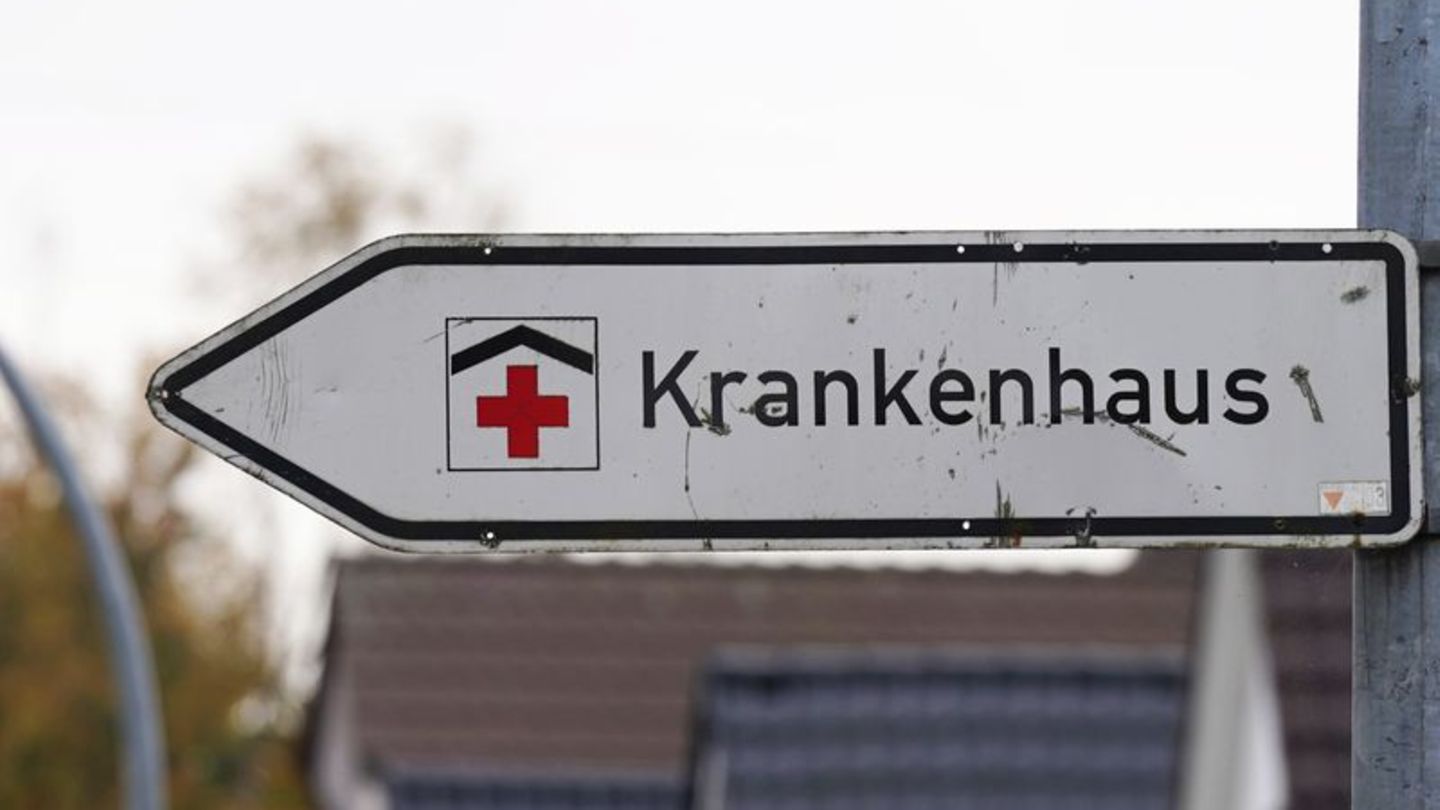With the hospital reform, the traffic light wants to improve medical care. But critics fear that patients will receive poorer care in the future.
Fewer hospitals in the country, but better quality and more specialization – these are the goals of a large-scale hospital reform that the Bundestag has decided on. After two years of preparation, the SPD, Greens and FDP launched the reform in a roll-call vote with their majority. The opposition rejected the plans.
The project still has to go through the Federal Council. According to the draft law, it does not require approval there, but it can be held up in the mediation committee. The plans met with approval, but also a lot of criticism. There are fears that the supply will deteriorate.
The number of clinics will decrease due to hospital reform
It is planned to change the current remuneration with flat rates for treatment cases in clinics. In the future, they should receive 60 percent of the remuneration for holding certain offers. This is intended to reduce the pressure to treat as many cases as possible.
Health Minister Karl Lauterbach (SPD) said that the reform would increase the quality of treatment in German hospitals and maintain a comprehensive network of good clinics in the country. “At the same time, hospitals that are not necessary are being dismantled or converted.” The concrete implementation of the reform should take place step by step over several years, so it will not be immediately noticeable for patients.
Before the vote, Lauterbach promoted the project again. “We need this reform, and we need it now.” The country’s hospital sector is in crisis. The supply is very expensive. “We have a coexistence of over-, under- and incorrect care.” He cited the frequent installation of knee prostheses as an example of oversupply because this is lucrative for clinics.
FDP: No hospital deaths in rural areas
Opposition politicians criticized the traffic light project. There is a lack of funding for the transition phase until the reform takes effect and an analysis of what impact the reform will have. The fear was also expressed that hospital care would deteriorate, especially in rural areas.
The FDP health politician Christina Aschenberg-Dugnus replied that it was nonsense that there would be a large number of hospital deaths in rural areas. “We want to prevent that with the law.” Lauterbach emphasized that reductions should only take place where there is an oversupply. Smaller houses in the countryside would receive supplements so that they could survive.
“Highest hospital density in Europe”
With around 1,700 hospitals, Germany has the highest hospital and bed density in Europe, according to the Ministry of Health. However, many beds are not occupied. Clinics are in the red.
The new payment system is intended to reduce financial pressure and prevent clinics from carrying out medically unnecessary operations for reasons of revenue. The basis for financing by the health insurance companies should be “performance groups”. They should describe the respective clinic treatments in more detail and ensure nationwide quality standards.
400 fewer clinics?
Statutory health insurance companies welcome more specialization. The head of the Techniker Krankenkasse, Jens Baas, spoke of setting the right course for better quality in the clinics. “It is high time for complicated treatments to be more centralized in larger clinics. Every hospital can no longer offer the full range of treatments.” However, the health insurance companies also warn of further cost increases as a result of the reform.
The German Hospital Association (DKG) has given fundamental approval to the goals of the reform. 20 to 30 percent of the locations or 400 houses could definitely be dispensed with through mergers or conversions, said DKG boss Gerald Gaß on Deutschlandfunk. However, he called for a “planned transformation process” and spoke of flying blind with regard to the reform.
Resistance in the countries
Resistance continues to threaten from the countries responsible for hospital planning. Health Minister Lauterbach was optimistic that the reform would not be stopped in the Federal Council. But the criticism from the states is still strong: the chairwoman of the Conference of Health Ministers of the states, Schleswig-Holstein’s Health Minister Kerstin von der Decken, warned that the reform would acutely jeopardize the security of basic and emergency care, especially in rural areas, and lead to uncontrolled clinic insolvencies would continue.
The CDU politician called for bridging financing for the hospitals until the reform takes effect and announced that she would advocate for the mediation committee in the Federal Council to be called upon to change the law.
The CDU defense politician Johann Wadephul brought a completely different argument into play on Friday: With a view to possible clinic closures, he warned in the Bundestag that “we will urgently need these hospitals to care for soldiers in a military emergency.” Wadephul referred to the warnings from German secret services about an increasing threat from Russia.
Source: Stern
I have been working in the news industry for over 6 years, first as a reporter and now as an editor. I have covered politics extensively, and my work has appeared in major newspapers and online news outlets around the world. In addition to my writing, I also contribute regularly to 24 Hours World.




